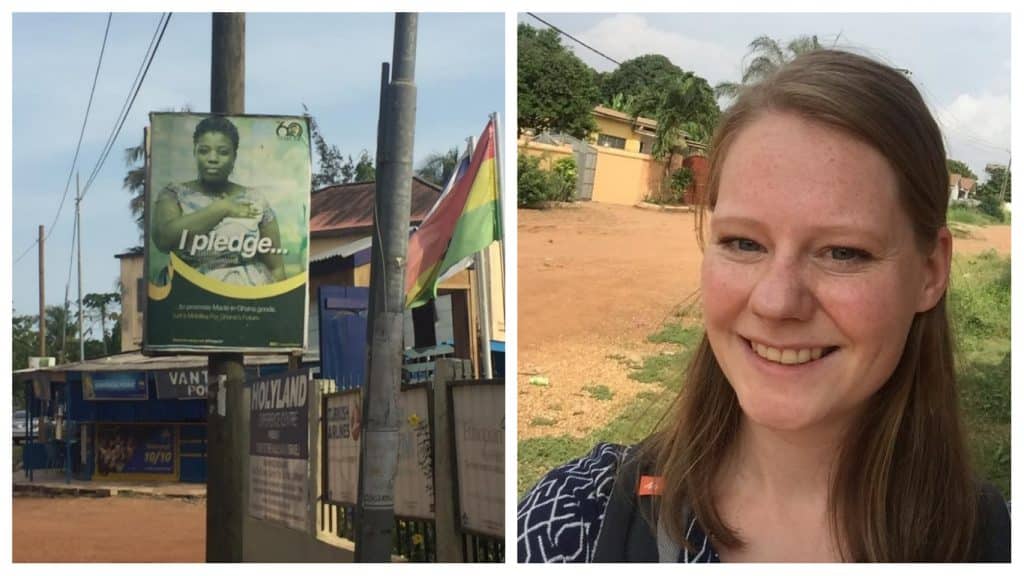FMS researcher Anne is in Ghana to talk about migration. Why do people want to migrate? How do they see their future? And what policy could be implemented to prevent irregular migration? Read her newest story here!
Time flies and I am already halfway through my month in Ghana. Last week I had my first real meetings with stakeholders in Accra. I asked them how they see the future of Ghana? Why do people want to migrate? And what role can or should the EU play regarding irregular migration from Ghana to Europe? They gave me some interesting insights.
One day in specific, I had two very interesting meetings with Richard and Banasco. And although their backgrounds were quite different, they both reached the same conclusion: we need to invest in the private sector in Ghana.
Richard and Banasco
Let me give you an introduction on these two interesting men: Richard and Banasco, both born in Ghana. Richards father migrated to the Netherlands, and when Richard was only five years old, the rest of the family followed. For the next 28 years, Richard lived in the Netherlands, where he went to school, to university and set up his own businesses.
Banasco was born in North Ghana, in quite a poor place. His big brother, only 12 years old, left their home, because he didn’t see any opportunities there. It took him five years, through the dessert and the sea, to reach Barcelona. Where he went to university and started the rest of his life. While living in Barcelona, his brother urged Banasco to make something of his live in Ghana. He told him it was too risky to go to Barcelona now. When Banasco wanted to visit his brother in Barcelona, it also took him five years to get there. But for him this time was spent on getting a visa only, with afterwards just a five hour flight. Instead of a five-year long journey through Africa.
Invest in the private sector
Both men returned to Ghana. Banasco because he only had a temporary visa and a dream: a dream to start a business to make something of his life in Ghana. Richard came back, because he had a chance to work here. Despite the different background, both men told me the same things: current policies target the wrong people. There should be a focus on investment in local entrepreneurship, the small and medium enterprises, because they are the ones that create jobs. “Make it possible for young people to start their own business, without having to put up a large sum of money as collateral”, added Richard.
Another problem is the low level of trust in government. Banasco said: “You need a leader, you need someone to make changes, to stand up to make these changes happen.” Despite the current issues, he has a lot of trust in his generation, the youth. There are many of them who want to do great things, but governments need to find a way to reach them.
Or… should we?
Later on this week I went to TUC, the Trades Union Congress of Ghana, the umbrella organisation with 20 national unions. Here I spoke to Phyllis and Kennedy, who did not totally agree with the important role others give to the private sector. “In the public sector, you at least have the government that is responsible for its employees.” And, in the end it is “We, Ghana, we are responsible”. Although the EU can help with practical things, such as facilitating exchange of knowledge between partners, support with training and providing soft resources.
The upcoming week I will meet many more people. I will visit the University of Ghana and have a meeting with the EU Delegation here in the country. I am trying to talk to as many different kind of stakeholders as possible, to get a view on migration that is as complete as possible. Feel free to contact me through info[at]foundationmaxvanderstoel.nl if you have relevant tips and ideas for me!




